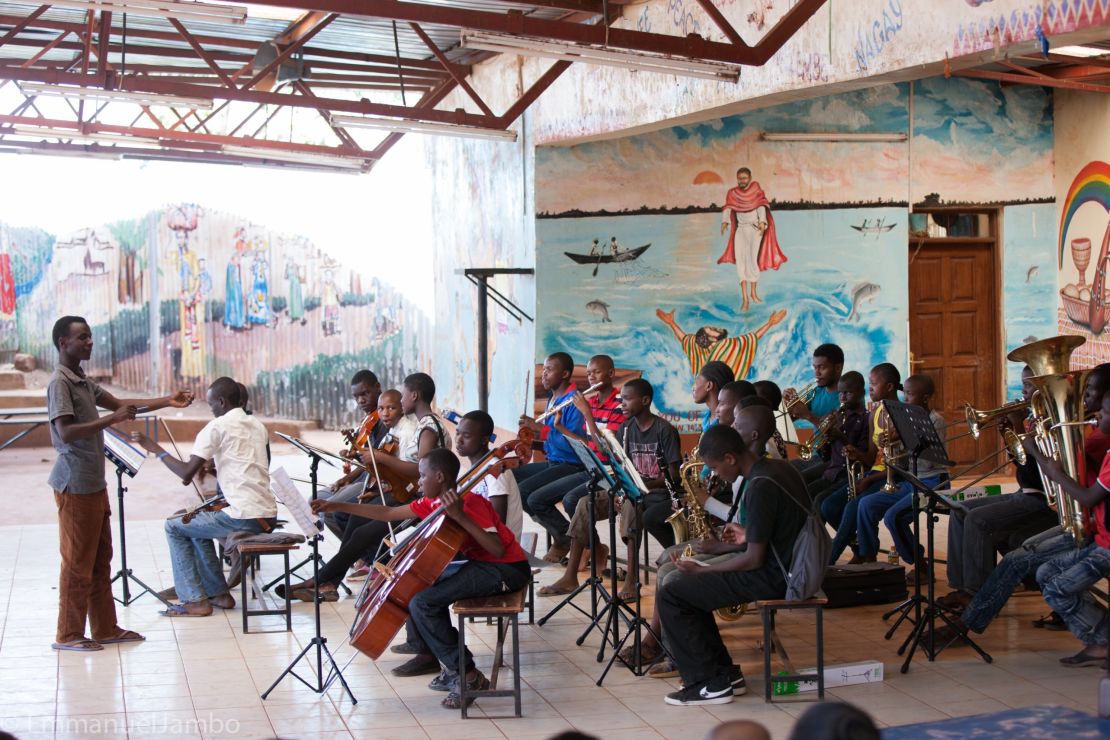One may not normally picture classical music when thinking of impoverished neighborhoods. Yet one of Nairobi’s biggest slums is currently churning out musical prodigies thanks to an initiative dubbed “Ghetto Classics.”
It’s the brainchild of The Art of Music Foundation, , whose main mission is to promote the appreciation and performance of music among underprivileged communities in Kenya. Started in 2009, the initiative teaches more than 300 children every week, providing tuition for free.
The foundation relies primarily on donated instruments, as well as proceeds from the Safaricom Jazz Festival, which has gone to buying new equipment. Though director Elizabeth Njoroge says her organization wants to do more than give kids a second-hand flute or clarinet. She wants to give them a new life.
“We believe the experience of learning music will change them, change who they are,” she says. “These are kids with very little structure and supervision in their lives, and learning to master complex skills such as classical music gives them import life skills they might not otherwise learn.”
The young musicians make up a brass band and string ensemble that practices every Sunday – dedication that has led to national recognition and appearances on TV, radio and state occasions. The publicity is helping classical music become more accepted in Kenya.
“It’s a little more mainstream than it was 10 years ago, and more black Kenyans are getting involved,” says Njoroge, who notes that more classical musicians in the country are making a living out of performing, something “unheard of before.”
“We still have a very long way to go,” says Njoroge, “but we are taking steps in the right direction. Things will be very different in 20 years’ time.”
All the way to State House

So could any of the children from Ghetto Classics turn professional? Njoroge thinks it’s a possibility.
“I have my eye on a few of them who really do have exceptional talent,” she says.
Clarinettist Vienna Adhiambo is reaping the benefits of the program. “Apart from education, it has really helped me realize myself,” she says. “[It’s helped me realize] what kind of goals I want to achieve and the right path I should follow.”
Eric Ochieng, a saxophonist, is also studying music, and he says “being part of Ghetto Classics has helped me with university.”
Due to their backgrounds, many of the musicians need a lot of support. “By far the biggest challenge is the lives of the kids themselves,” Njoroge explains. “They live tough lives, [and face] extreme poverty, abuse – emotional, physical and sexual – and hopelessness.”
The band’s camaraderie is key. “Ghetto Classics is like a family,” affirms Ochieng. “We help each other outside of music.”
“We never set out to be a social program, but we can’t help it,” says Njoroge. “We keep trying to make sure the kids keep coming and these situations don’t stand in the way of their potential.”
It’s potential that has taken the foundation’s young musicians all the way to State House, where they invited by President Uhuru Kenyatta to perform on Kenyan Independence Day. It was, says Njoroge, “the greatest achievement since we’ve started.”
“When we started, the community though we were crazy – they laughed at us. Now the community is very proud.
“Whatever they grow up to do, these kids will do it well because they learned music. I truly believe that.”




